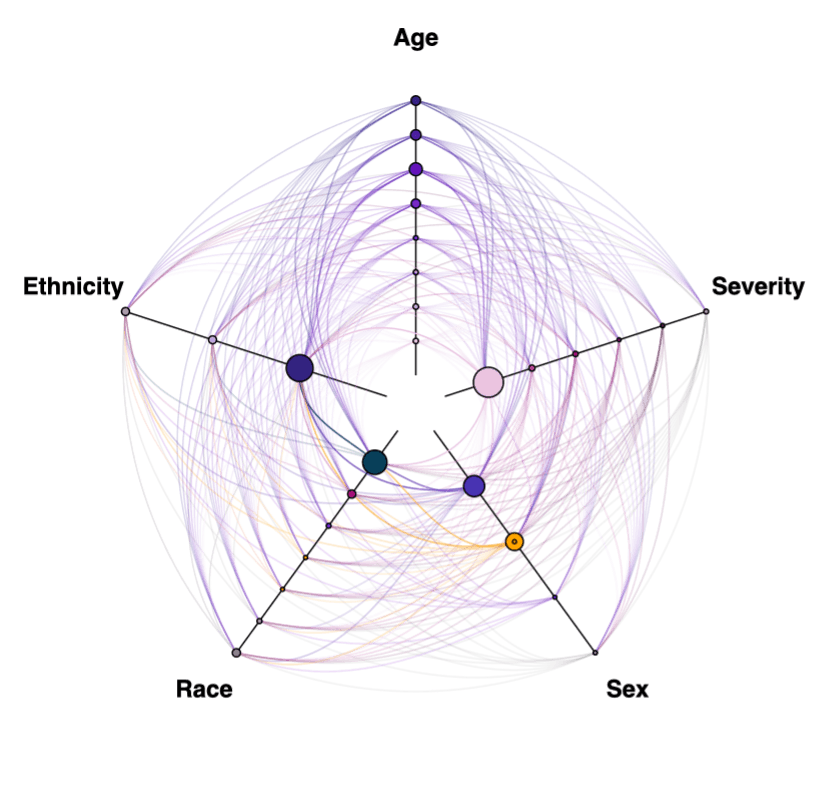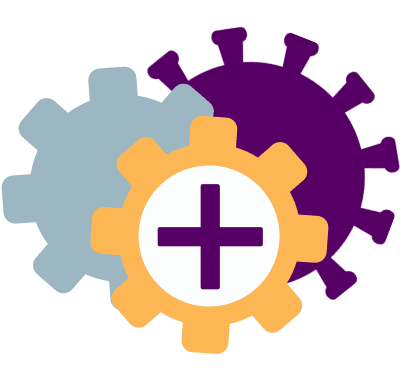"2020 has truly been an important year for team science! No one has ever created a limited dataset like this in the history of the United States. This nationwide initiative is a testament to the scientific community to share, harmonize, and analyze data in such a collaborative manner and at such a scale. The N3C is fundamentally changing how we think about doing science together. We look forward to continued progress in 2021!"
--- Melissa Haendel, PhD, FAMIA N3C Co-Director, Oregon Health & Science University
"As someone with an immunocompromised family member, this pandemic brought fear and uncertainty into my home. There is little data on how immunocompromised patients will respond to SARS-Cov-2 infection, which has resulted in patients wondering if they should suspend life-altering treatments. The N3C initiative and data repository has sparked national collaborations with the goal of answering many of these yet unanswered questions about COVID-19. The ISC Domain Team aims to mine the N3C data to identify how different types, levels, and durations of immunocompromise may affect severity and outcomes of infected patients."
--- Amy Olex Senior Bioinformatics Specialist, Virginia Commonwealth University
"The N3C data and community are an incredible asset for rapidly engaging in timely research about COVID-19. The Pregnancy Domain Team aims to leverage N3C data to gain insights into pressing COVID-19 questions around pregnancy. Our goal is to understand incidence, timing and severity in pregnant women, maternal and infant outcomes, and associated characteristics (clinical, demographic, environmental). We invite others to join our team to help expand our goals and research questions to best address questions with clinical relevance in this vulnerable population."
---Elaine Hill, PhD Assistant Professor, Department of Public Health Sciences, University of Rochester Medical Center
"As the co-lead of the Portals and Dashboards subgroup with Dave Eichmann at University of Iowa, my experience engaging with N3C has been very smooth, in spite of the urgency and very short timelines. Self-directed tutorials are now available through Palantir, the NCATS hosted platform for the N3C Enclave. For anyone who has not yet joined a workstream or a subgroup, I definitely encourage you to do so! There is a lot to do and a large capacity for contributing to our institutional data and knowledge for solving important national and global COVID-19 problems."
--- Warren Kibbe, PhD Duke University, Chief of Division of Translational Biomedical Informatics
"I have been excited about N3C since I first heard of the concept. I was delighted to have UNC support N3C with effort from our Informatics group led by Emily Pfaff. I have helped engage others in the process of getting the wider community of investigators on board. Now I am beavering away trying to leverage N3C to understand the problem of severe outcomes from COVID-19 in patients with diabetes. It has been inspiring to play a small role with a cast of hundreds in this groundbreaking innovation to address the biggest threat the world has faced in my lifetime."
--- John Buse, MD, PhD Director, NC Translational and Clinical Sciences Institute
"The Translational Research Institute at UAMS is very excited to be part of the N3C initiative. This data-sharing resource provides the opportunity to better understand the national impact of COVID-19 on the health of vulnerable populations. We are particularly interested in using this platform to compile a novel resource for radiology images of COVID-19 patients. This initiative, led by Fred Prior, will support both research and the education of trainees. Under John Arthur's leadership, we will also use N3C to better understand the impact of COVID-19 on renal function and identify risk factors that will allow us to personalize future COVID-19 treatments. We envision a number of other research endeavors with colleagues in the College of Public Health using clinical data from all 60 CTSA institutions to develop effective treatment and prevention strategies for the future."
--- Laura P. James, MD CTSA Director, University of Arkansas for Medical Sciences (UAMS)
"The N3C initiative is rapidly creating an unprecedented, multi-institutional clinical data source, along with powerful analytic pipelines to gain actionable insight into the COVID-19 pandemic. The curated dataset includes different time periods, geographic locations, and hospital types that will lead us to a much deeper and more rich understanding of the facets of the pandemic. Going forward, this remarkable partnership will be the benchmark against which all observational clinical research efforts will be judged."
--- Joel Saltz, MD, PhD Vice President for Clinical Informatics at Stony Brook Medicine
"The N3C provides an incredible platform to collaborate with scientists from around the country to generate important real-world evidence regarding medications given to patients with COVID-19. As the safety and effectiveness of existing drugs and new treatments are being evaluated, it is vital that we use the best available data sources and science to do so. The N3C provides an unparalleled resource**---and framework---**to conduct rigorous studies to address questions around medication use in COVID-19."
--- Hemalkumar Mehta, PhD Johns Hopkins Bloomberg School of Public Health
"The choice of ventilation therapy for and the temporal trajectory of multi-organ dysfunction in acute COVID-19 cases are the most challenging issues that this disease has posed to the critical care community. On the informatics side, COVID-19 has brought unique ICU data quality and phenotyping needs to the spotlight. N3C offers resources and diverse, harmonized data to address these needs in tangible and transparent ways."
--- Vignesh Subbian, PhDAssistant Professor of Biomedical Engineering, University of Arizona
"N3C establishes the precedent for EHR data integration on a secure enclave to support clinical discovery enabled by collaborative, large-scale, computationally-intensive data science. We believe there is an enormous amount of talent, not just in academic medical centers, but in computer science, data science, and social studies departments. We have the opportunity to transform the way clinical science is done, leveraging the tools and resources of big data and data science in ways that have not been possible before."
--- Chris Chute, MD, DrPH N3C Co-Director, Johns Hopkins Medicine, Chief Research Information Officer
"The N3C project has provided researchers across the country with invaluable resources to identify social determinants of health (SDoH) related to vulnerability, high COVID-19 incidence, and poor outcomes. As co-lead for the SDoH task team, I can facilitate the development of robust research protocols, integrate various datasets, coordinate training on the N3C platform, collaboratively analyze COVID-19 data, and provide opportunities for investigators to share related research and propose ideas."
--- Charisse Madlock-Brown, PhD, MLS Assistant Professor, Health Informatics & Information Management, UTHSC
"We are proud to participate in these ambitious endeavors to support clinicians and patients living with serious chronic diseases. The high quality real world data available empower us to obtain key insights in the treatment of type 2 diabetes in connection with COVID-19 substantially faster, with the ultimate aim of supporting our patients worldwide."
--- Martin Lange, Senior Vice President for Global Development, Novo Nordisk
"The N3C is a valuable resource for advancing our understanding of the impact of COVID-19 on the kidney, which will have a direct impact on how we deliver health care to these patients."
--- Sandeep Mallipattu, MD, FASNChief of Nephrology, Stony Brook Medicine
"COVID-19 is a public health crisis that impacts everyone. The National COVID Cohort Collaborative (N3C) initiative unifies the informatics community for the common goal of transforming big data into knowledge. It will enable us to generate insights from nationwide observational data, advance our understanding of the virus, and derive real-world evidence for rapid dissemination. I am grateful to be part of this effort."
--- Hongfang Liu, PhD Professor in Bioinformatics, Mayo Clinic
"The Applicable Data Methods & Standards (ADM&S) Domain Team is working to pave the way for researchers to approach scientific challenges in the N3C Data Enclave. I quickly found my way to the ADM&S discussions once I realized that a unique combination of innovative analytics grounded in proven methods would be needed. Researchers from a number of clinical Domain Teams with diverse backgrounds participate in our shared effort to make a positive impact on population health. This cross-cutting Domain Team intends to make the best analytic tools available for anyone interested in conducting research with N3C. I can't wait to see what we accomplish together."
--- Eli Levitt, MS, MD candidate Research Fellow, Department of Orthopaedic Surgery, Center for Clinical and Translational Science, University of Alabama
"I am really excited about N3C, not only because it will provide wide and wise access to data that will enable many professional and citizen scientists to find important relationships involving COVID-19 infection, clinical features, concomitant medical conditions, and social-environmental circumstances, but also because it will serve as a model for the provision of data concerning so many other national health crises from asthma to sickle cell disease. N3C demonstrates that, as a nation, we can share data for the common good. Let's build on its success to speed health improvement and disease prevention for all Americans."
--- Julian Solway, MD Director of the Institute for Translational Medicine, University of Chicago,
"The emergency medicine system is on the front lines of the COVID pandemic. The N3C Data Enclave is providing emergency medicine researchers an integrated, national view of how emergency departments are handling SARS-CoV-2 infections. The information is critical in following the rapid evolution of case definitions, treatment protocols, and outcomes of patients in the emergency departments across the country."
--- James McClay, MD, FACEP Professor for the Department of Emergency Medicine, University of Nebraska
"2020 has truly been an important year for team science! No one has ever created a limited dataset like this in the history of the United States. This nationwide initiative is a testament to the scientific community to share, harmonize, and analyze data in such a collaborative manner and at such a scale. The N3C is fundamentally changing how we think about doing science together. We look forward to continued progress in 2021!"
--- Melissa Haendel, PhD, FAMIA N3C Co-Director, Oregon Health & Science University
"As someone with an immunocompromised family member, this pandemic brought fear and uncertainty into my home. There is little data on how immunocompromised patients will respond to SARS-Cov-2 infection, which has resulted in patients wondering if they should suspend life-altering treatments. The N3C initiative and data repository has sparked national collaborations with the goal of answering many of these yet unanswered questions about COVID-19. The ISC Domain Team aims to mine the N3C data to identify how different types, levels, and durations of immunocompromise may affect severity and outcomes of infected patients."
--- Amy Olex Senior Bioinformatics Specialist, Virginia Commonwealth University
"The N3C data and community are an incredible asset for rapidly engaging in timely research about COVID-19. The Pregnancy Domain Team aims to leverage N3C data to gain insights into pressing COVID-19 questions around pregnancy. Our goal is to understand incidence, timing and severity in pregnant women, maternal and infant outcomes, and associated characteristics (clinical, demographic, environmental). We invite others to join our team to help expand our goals and research questions to best address questions with clinical relevance in this vulnerable population."
---Elaine Hill, PhD Assistant Professor, Department of Public Health Sciences, University of Rochester Medical Center
"As the co-lead of the Portals and Dashboards subgroup with Dave Eichmann at University of Iowa, my experience engaging with N3C has been very smooth, in spite of the urgency and very short timelines. Self-directed tutorials are now available through Palantir, the NCATS hosted platform for the N3C Enclave. For anyone who has not yet joined a workstream or a subgroup, I definitely encourage you to do so! There is a lot to do and a large capacity for contributing to our institutional data and knowledge for solving important national and global COVID-19 problems."
--- Warren Kibbe, PhD Duke University, Chief of Division of Translational Biomedical Informatics
"I have been excited about N3C since I first heard of the concept. I was delighted to have UNC support N3C with effort from our Informatics group led by Emily Pfaff. I have helped engage others in the process of getting the wider community of investigators on board. Now I am beavering away trying to leverage N3C to understand the problem of severe outcomes from COVID-19 in patients with diabetes. It has been inspiring to play a small role with a cast of hundreds in this groundbreaking innovation to address the biggest threat the world has faced in my lifetime."
--- John Buse, MD, PhD Director, NC Translational and Clinical Sciences Institute
"The Translational Research Institute at UAMS is very excited to be part of the N3C initiative. This data-sharing resource provides the opportunity to better understand the national impact of COVID-19 on the health of vulnerable populations. We are particularly interested in using this platform to compile a novel resource for radiology images of COVID-19 patients. This initiative, led by Fred Prior, will support both research and the education of trainees. Under John Arthur's leadership, we will also use N3C to better understand the impact of COVID-19 on renal function and identify risk factors that will allow us to personalize future COVID-19 treatments. We envision a number of other research endeavors with colleagues in the College of Public Health using clinical data from all 60 CTSA institutions to develop effective treatment and prevention strategies for the future."
--- Laura P. James, MD CTSA Director, University of Arkansas for Medical Sciences (UAMS)
"The N3C initiative is rapidly creating an unprecedented, multi-institutional clinical data source, along with powerful analytic pipelines to gain actionable insight into the COVID-19 pandemic. The curated dataset includes different time periods, geographic locations, and hospital types that will lead us to a much deeper and more rich understanding of the facets of the pandemic. Going forward, this remarkable partnership will be the benchmark against which all observational clinical research efforts will be judged."
--- Joel Saltz, MD, PhD Vice President for Clinical Informatics at Stony Brook Medicine
"The N3C provides an incredible platform to collaborate with scientists from around the country to generate important real-world evidence regarding medications given to patients with COVID-19. As the safety and effectiveness of existing drugs and new treatments are being evaluated, it is vital that we use the best available data sources and science to do so. The N3C provides an unparalleled resource**---and framework---**to conduct rigorous studies to address questions around medication use in COVID-19."
--- Hemalkumar Mehta, PhD Johns Hopkins Bloomberg School of Public Health
"The choice of ventilation therapy for and the temporal trajectory of multi-organ dysfunction in acute COVID-19 cases are the most challenging issues that this disease has posed to the critical care community. On the informatics side, COVID-19 has brought unique ICU data quality and phenotyping needs to the spotlight. N3C offers resources and diverse, harmonized data to address these needs in tangible and transparent ways."
--- Vignesh Subbian, PhDAssistant Professor of Biomedical Engineering, University of Arizona
"N3C establishes the precedent for EHR data integration on a secure enclave to support clinical discovery enabled by collaborative, large-scale, computationally-intensive data science. We believe there is an enormous amount of talent, not just in academic medical centers, but in computer science, data science, and social studies departments. We have the opportunity to transform the way clinical science is done, leveraging the tools and resources of big data and data science in ways that have not been possible before."
--- Chris Chute, MD, DrPH N3C Co-Director, Johns Hopkins Medicine, Chief Research Information Officer
"The N3C project has provided researchers across the country with invaluable resources to identify social determinants of health (SDoH) related to vulnerability, high COVID-19 incidence, and poor outcomes. As co-lead for the SDoH task team, I can facilitate the development of robust research protocols, integrate various datasets, coordinate training on the N3C platform, collaboratively analyze COVID-19 data, and provide opportunities for investigators to share related research and propose ideas."
--- Charisse Madlock-Brown, PhD, MLS Assistant Professor, Health Informatics & Information Management, UTHSC
"We are proud to participate in these ambitious endeavors to support clinicians and patients living with serious chronic diseases. The high quality real world data available empower us to obtain key insights in the treatment of type 2 diabetes in connection with COVID-19 substantially faster, with the ultimate aim of supporting our patients worldwide."
--- Martin Lange, Senior Vice President for Global Development, Novo Nordisk
"The N3C is a valuable resource for advancing our understanding of the impact of COVID-19 on the kidney, which will have a direct impact on how we deliver health care to these patients."
--- Sandeep Mallipattu, MD, FASNChief of Nephrology, Stony Brook Medicine
"COVID-19 is a public health crisis that impacts everyone. The National COVID Cohort Collaborative (N3C) initiative unifies the informatics community for the common goal of transforming big data into knowledge. It will enable us to generate insights from nationwide observational data, advance our understanding of the virus, and derive real-world evidence for rapid dissemination. I am grateful to be part of this effort."
--- Hongfang Liu, PhD Professor in Bioinformatics, Mayo Clinic
"The Applicable Data Methods & Standards (ADM&S) Domain Team is working to pave the way for researchers to approach scientific challenges in the N3C Data Enclave. I quickly found my way to the ADM&S discussions once I realized that a unique combination of innovative analytics grounded in proven methods would be needed. Researchers from a number of clinical Domain Teams with diverse backgrounds participate in our shared effort to make a positive impact on population health. This cross-cutting Domain Team intends to make the best analytic tools available for anyone interested in conducting research with N3C. I can't wait to see what we accomplish together."
--- Eli Levitt, MS, MD candidate Research Fellow, Department of Orthopaedic Surgery, Center for Clinical and Translational Science, University of Alabama
"I am really excited about N3C, not only because it will provide wide and wise access to data that will enable many professional and citizen scientists to find important relationships involving COVID-19 infection, clinical features, concomitant medical conditions, and social-environmental circumstances, but also because it will serve as a model for the provision of data concerning so many other national health crises from asthma to sickle cell disease. N3C demonstrates that, as a nation, we can share data for the common good. Let's build on its success to speed health improvement and disease prevention for all Americans."
--- Julian Solway, MD Director of the Institute for Translational Medicine, University of Chicago,
"The emergency medicine system is on the front lines of the COVID pandemic. The N3C Data Enclave is providing emergency medicine researchers an integrated, national view of how emergency departments are handling SARS-CoV-2 infections. The information is critical in following the rapid evolution of case definitions, treatment protocols, and outcomes of patients in the emergency departments across the country."
--- James McClay, MD, FACEP Professor for the Department of Emergency Medicine, University of Nebraska
"2020 has truly been an important year for team science! No one has ever created a limited dataset like this in the history of the United States. This nationwide initiative is a testament to the scientific community to share, harmonize, and analyze data in such a collaborative manner and at such a scale. The N3C is fundamentally changing how we think about doing science together. We look forward to continued progress in 2021!"
--- Melissa Haendel, PhD, FAMIA N3C Co-Director, Oregon Health & Science University









